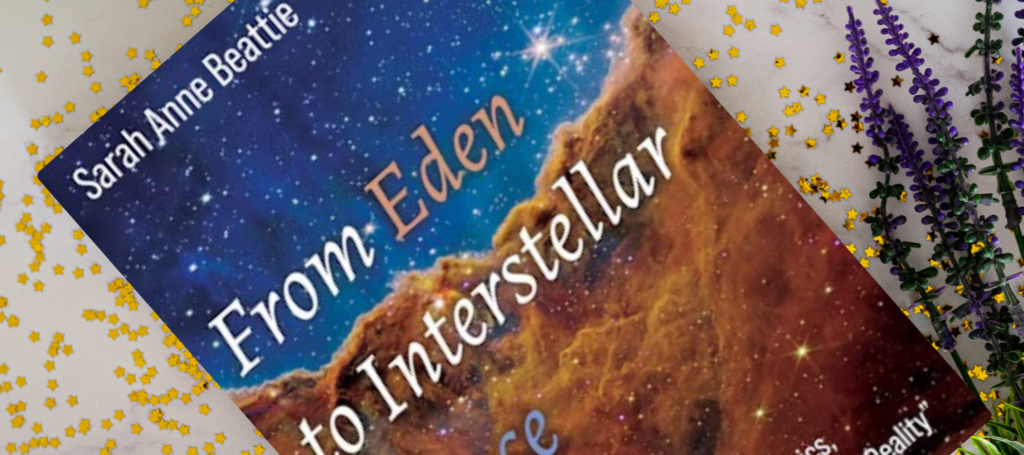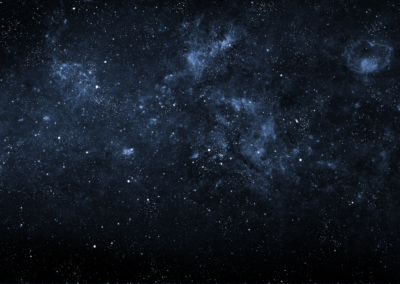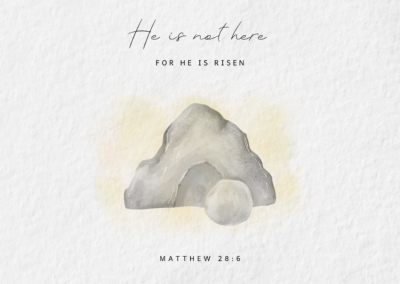
This reflection celebrates Sarah Anne Beattie’s marvellous achievement in From
Eden to Interstellar Space. I would like to call this little response to Sarah Beattie’s
work, “Going Beyond the Bitter River.” In this I draw from the beautiful way Sarah’s
book begins with a utterly disarming juxtaposition between the world’s oldest map,
Babylonian, (drafted well before the Bible), in which a “Bitter River” encircles the 6th
century earth, and a CMB map more recently drafted on a satellite in space that
captures the afterglow of the Big Bang. These are metaphorical bookends of a work
that is not only ambitious but profoundly moving, so, a glimpse into From Eden to
Interstellar Space.
What is its question, this work? At its heart, this book dares to ask: Can faith and
science not just coexist, but actually expand each other’s horizons? Sarah draws
inspiration from an unlikely source, philosopher and atheist/non-theist Thomas
Nagel, who questioned whether the materialist scientific worldview is really enough
to explain consciousness, meaning, and reality.
Sarah’s project takes up this challenge with remarkable skill and dauntless curiosity.
With Nagel as perhaps reluctant comrade, she traverses the fields of theology,
biblical studies, philosophy, ancient literatures and mythology, and then equally
ambitious fields in science — astronomy, cosmology, quantum mechanics — without
losing hold of her golden thread. Where many might struggle in such vast
interdisciplinary twists and turns, Sarah finds her way into the very centre of the
labyrinth — and there she finds something incredible (a Minotaur? Or something
else?).
In From Eden to Interstellar Space the method is complex. Sarah weaves ideas from
disparate disciplines together like Ariadne: careful, intricate, but also bold and
imaginative. The result is a surpising hermeneutic — a way of reading biblical texts
that is expansive, original, and honouring—deeply respectful of both ancient
traditions and modern scientific insight, and held steady by Nagel’s will to
authenticity.
Sarah’s work isn’t about defending religion against science, or science against
religion. It’s about rethinking both that seem to lie at opposing ends of an
epistemological spectrum. With a set of test cases, she argues that biblical
narratives — like the story of Eden, the Annunciation, and the cosmic battle in
Revelation — are not outdated myths. They are, instead, examples of humanity’s
courageous attempts to map realities that are, even now, beyond comprehension.
Thus Sarah stages a stunning and compassionate conversation between the ancient
imagination and space-age consciousness — and shows that rather than competing,
these two can together extend the boundaries of the thinkable.
My respect for Sarah’s work is unreserved. I commend her not just for a truly
exemplary intellectual expertise, but for the bravery and generosity of her thought. I
am not overstating it to say, From Eden to Interstellar Space: Thomas Nagel, Biblical
Hermeneutics, and the Search for “the True Extent of Reality” is indeed a
masterpiece — intellectually rigorous, creative, and very much needed in a troubled
world. If I could compare this work to anything, it is Terrence Malick’s (2011) film Tree
of Life — it evokes in me a similar sense of cosmic wonder, this unfolding and
refolding of time and space, superb intricacy, robustly anchored in philosophy and
theological/biblical knowledge. Within the pages lies a rich integrity in terms of care
of the sacred, not too faint-hearted to explore creative or novel routes in theology
and thus beautifully capacious in its open-ended notions of spirituality. It seems like
the horizon of creation is caught in one’s gaze. From Eden to Interstellar Space is
not just a book about belief or science. It’s a breathtaking invitation to think, and to
believe, more expansively and more authentically.
In this era where knowledge is routinely distorted by hollow men, Sarah’s work
reminds me that the quest for truth — whether scientific, philosophical, or theological
— requires courage and always comes at a cost. I want to return to the Bitter River
here. Stepping into it (stepping into a PhD or writing a book) means stepping into
the unknown where monsters, wonders and strange beasts lurk. It requires at times
a hero’s quest beyond what has previously been thought, and at the outset begins a
journey beyond the comforts of hearth and home. Bilbo Baggins would say, “It’s a
dangerous business, Sarah, going out your door. You step onto the road, and if you
don’t keep your feet, there’s no knowing where you might be swept off to.” As Sarah
writes in her epilogue going out her front door led her to wondrous and sometimes to
very lonely places. It is a secret cost that fewer and fewer in our old circles truly
understand this kind of intellectual and spiritual pilgrimage.
Sarah, in your embrace of theological complexity, your openness, and willingness to
let imagination and reason work together rather than tearing them apart, you became
in this book a little like a biblical prophet of old, wandering the magnificent expanse
of wild places—star fields above, mountains afar off. You beheld holy fires on the
limbs of desert trees, and, on the zephyrs of evening you heard the lilting echo of the
still, small voice of your god.
Thank you for writing this book.



